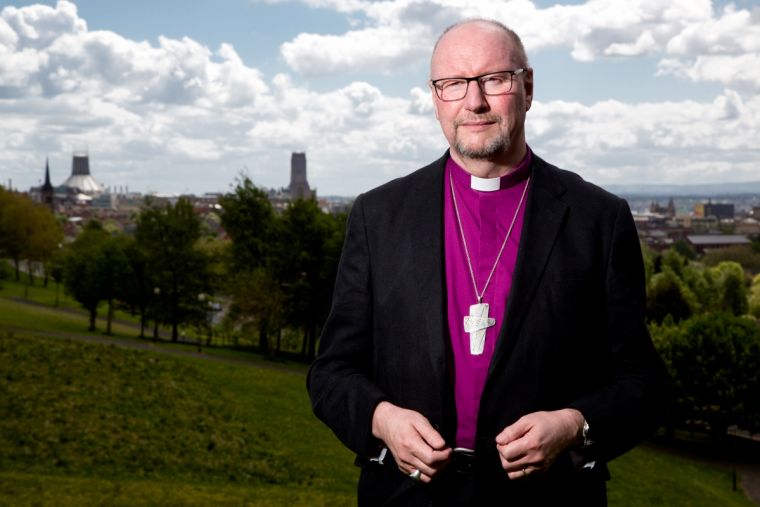You Have The Right To Be Angry! Bishop Of Liverpool Advice To LGBT Christians

The Bishop of Liverpool has urged lesbian and gay Christians not to hide or suppress their anger about the way they have been treated by the Church.
Too often, people in power dismiss angry people with phrases such as, "Calm down, dear," he says.
"In the face of this old and cold advice I want to offer an even older, warmer, Biblical encouragement to those on the edge in the churches, and in this season to LGBT Christians in particular: be warmly angry, be hot with anger, but do not boil away."
He urges them not to give up, however hard things get.
"Feel what you feel, and turn the feeling to strength. Don't mourn, organise. Let the person you are in God speak out, so that your own desires and your own anger become the engine for a just world."
He is writing on the Via Media blog, set up by the General Synod member Jayne Ozanne who recently came out as a lesbian.
Bishop Paul Bayes, from the Church of England's evangelical wing, admits Christians have a tradition of denying anger.
Yet anger is not sin, he insists.
"The Christian tradition has often suspected anger, excluding it from this vision of the whole of life redeemed, expecting disciples to amputate it or repress it or ignore it, at any rate to suspect it and fear it, to regret it and deplore it and certainly not to listen to its voice and amplify its cry."
He has written about this subject to address poor practice in the Church.
"The poor practice is this; that people whose inner and outer lives are deeply impacted by an issue, and who become angry as a result, are discounted precisely because of their anger.
"This has been the age-old fate of women in the West, and the fate of any oppressed group, and it is the fate of many LGBT people in the Church today. The advice from the men at the top (and they usually are men, and they are always at the top) is the old, infuriating, demeaning advice: 'Calm down, dear'."
He cites the story of a desert saint of the early Church, who kept a stone in his mouth for many months "until he learned to speak without anger".
Bayes writes: "For much of the church and much of the time, to be angry has been the same as to be immature. In such a view anger must be bottled up, we must hedge the heart before we speak."
This supports the view that the only thing that matters is dispassionate argument.
"In such a view argument is what makes a difference, argument is what moves and changes people, only argument. After argument there can be no room for feeling, only argument moves the world and the church family along, we were born to argue and then to submit to the better argument."
Even Jesus hmself said the angry would be subject to judgement, in Matthew 5:22. Yet Jesus was not afraid to show his own anger when he cleared the Temple.
The answer is that aggression should be present, but "reasonable".
He quotes former Labour leader Neil Kinnock in 1992 speaking to Philip Gould: "That's what politics is about, Philip; love and anger."
Bayes also quotes director Ken Loach, who said this year: "That constant humiliation to survive. If you're not angry about it, what kind of person are you?"
Bayes says: "What motivates people to make a difference? What motivates people to return, day after day, in the face of discouragement and misunderstanding and opposition, to make a difference again? And to keep on making a difference until things are different? How do we find the strength inside?"
Yet the jumble of emotions, desires, longings and hopes is made in the image of God, therefore God-given and capable of redemption.
"From there the journey begins, the journey to change the world inside and outside. Kieran, one of the leaders of 'Open Table', our LGBT congregation in Liverpool, told me this week of a saying they have there: 'Come as you are. Be as you are. Leave differently'."











